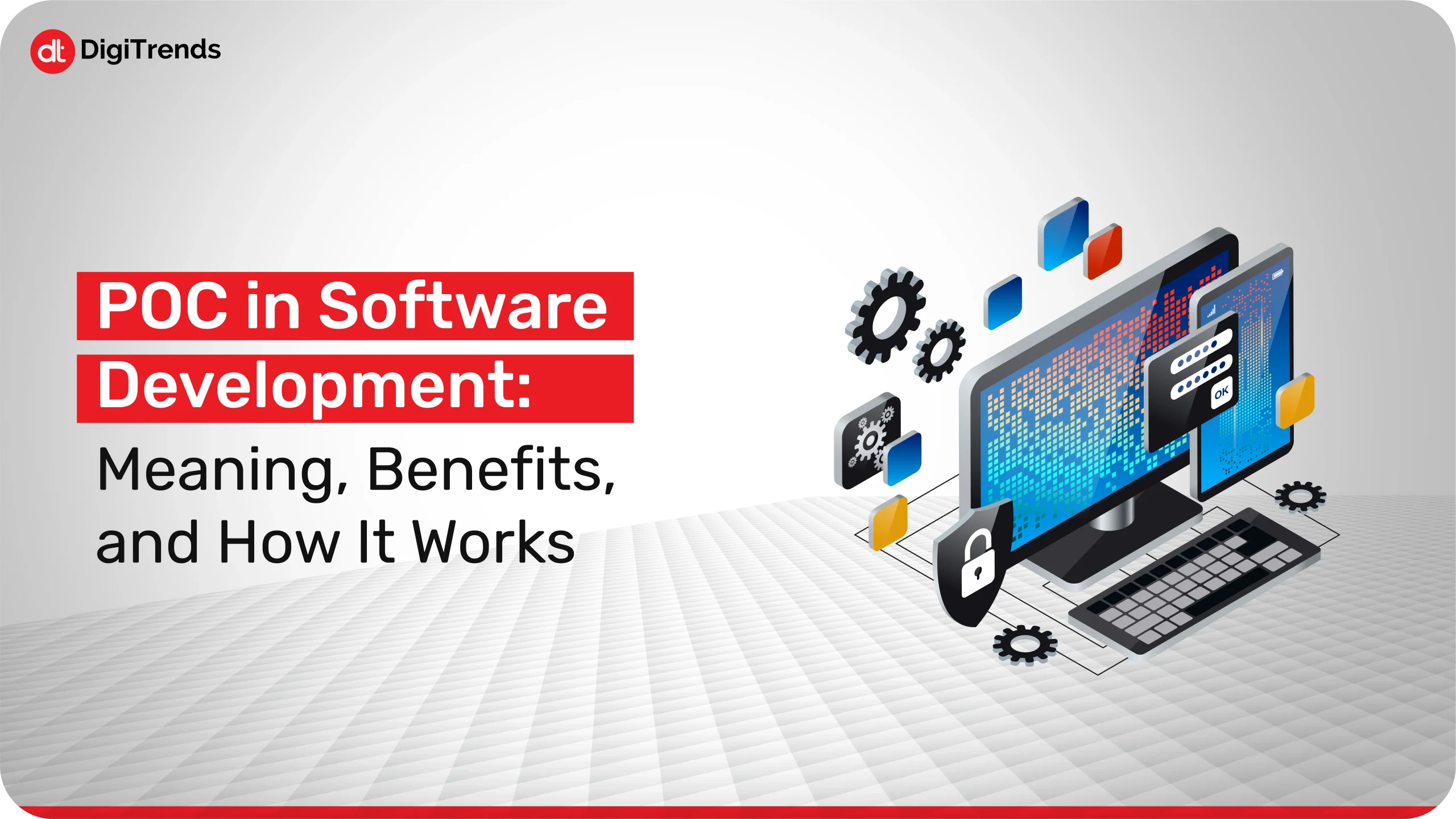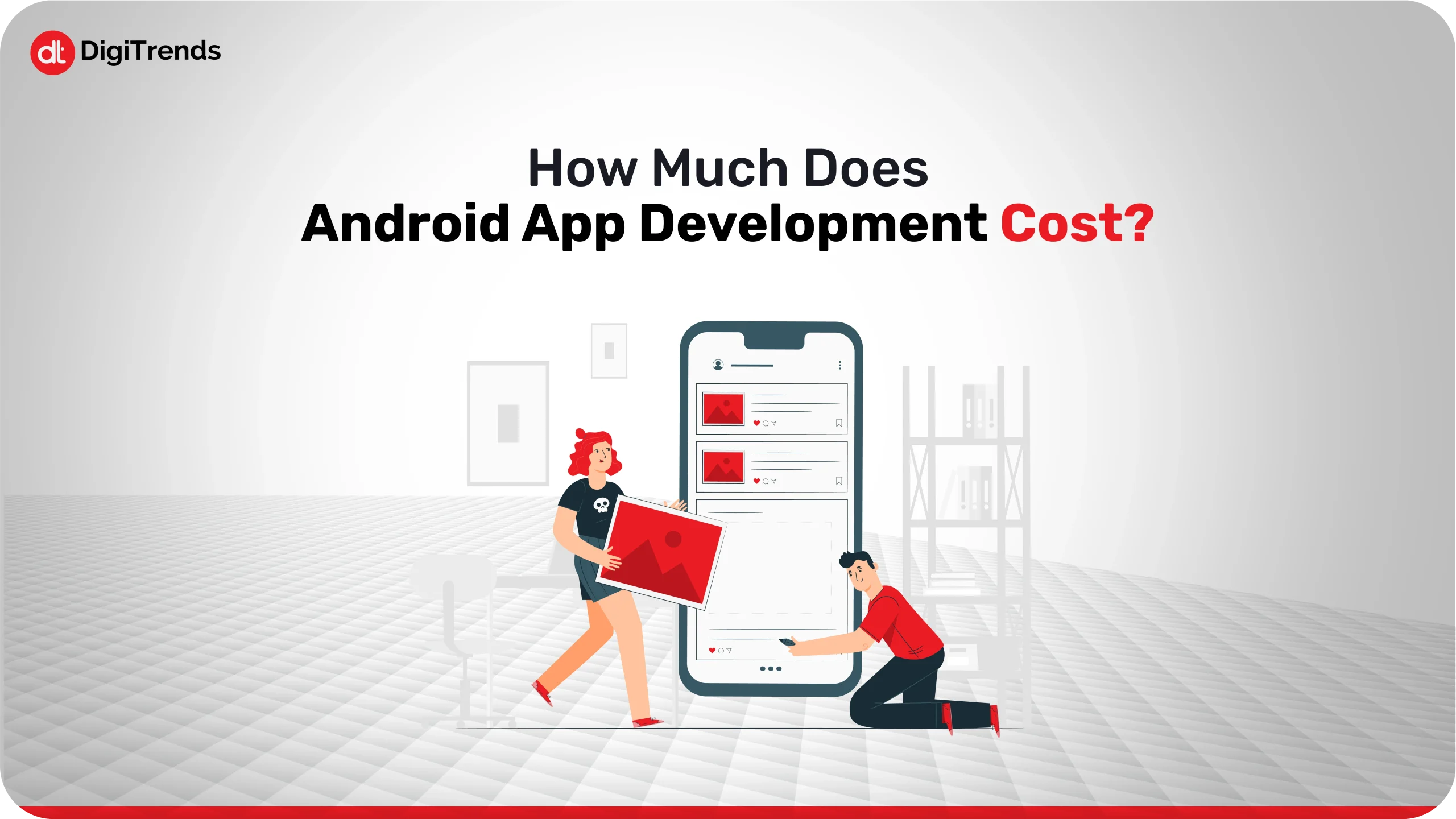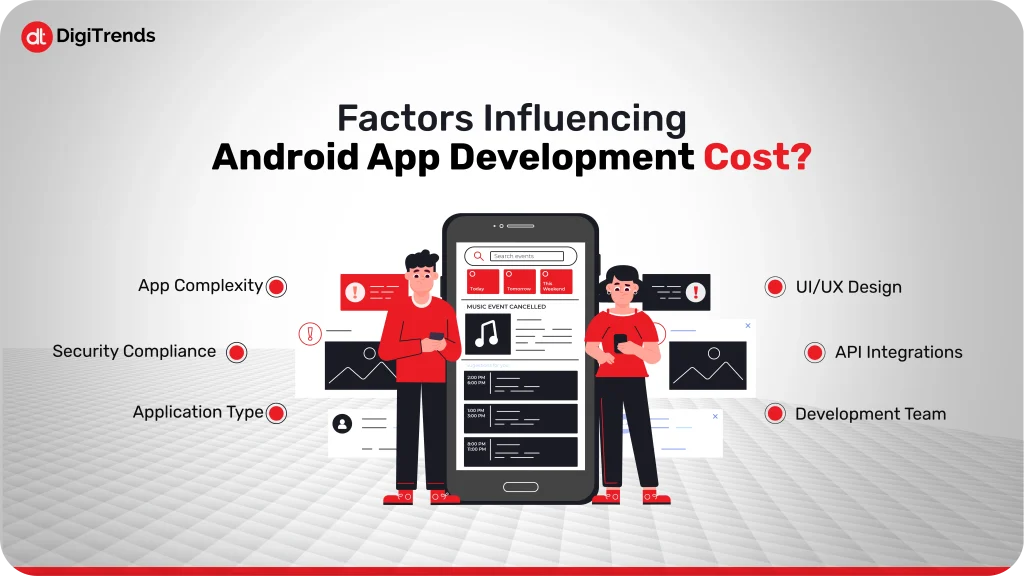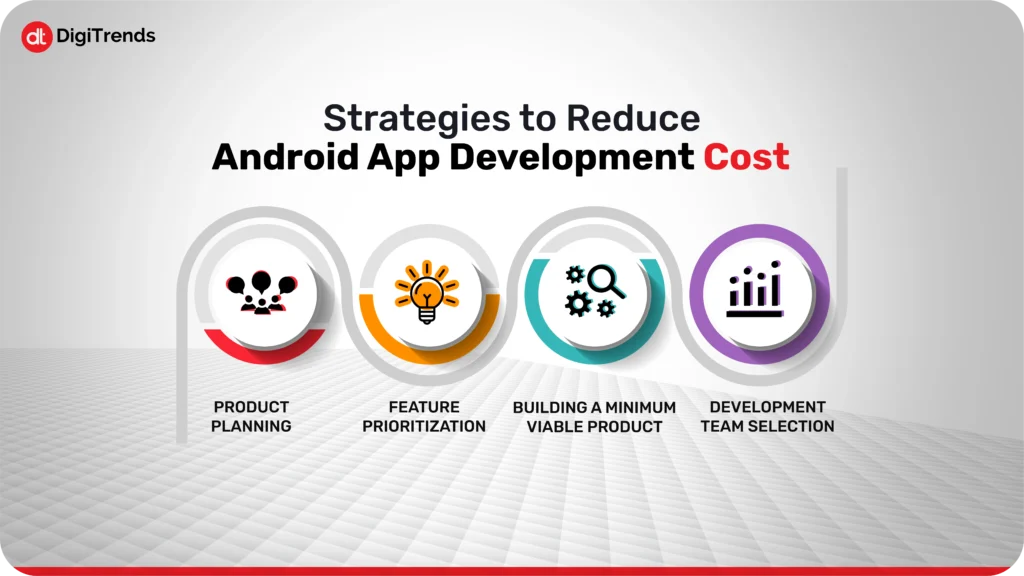
POC in Software Development: Meaning, Benefits, and How It Works
Explore what Proof of Concept (PoC) in software development is, how it benefits teams in making better decisions, and how it works.
Continue Reading
If you are looking to scale up your business or startup, then Android app development is the correct choice. The Android app will help you reach the maximum users and give your business a digital transformation.
Android is among the most popular mobile operating systems in the world, which creates numerous opportunities not only for developers but also for businesses. Android apps have a vast reach and user base, as in the first quarter of 2025, Android still holds a market share of about 71.88 percent. Android’s position as the leading mobile operating system worldwide is well maintained. Android users are spread over 190 countries, with over 3 billion active users. This is the reason why organizations wish to create Android apps to scale up their businesses.
Let’s walk you through the Android app development costs, factors that influence costs, reasons to invest in Android app development, and more.
The Android platform is a popular platform for app development worldwide, which makes choosing it for your app development a logical decision. However, there are several reasons why you should opt it for app development.
Let’s have a look at the reasons why you should choose Android for app development:
The flexibility and availability of free tools play an important role in deciding whether a platform is suitable for app development or not. Android’s strength lies in its open-source nature; developers can easily access the Android Operating System’s source code. This open-source system allows developers to customize apps while adding their creativity that too, with flexibility, which other platforms don’t provide.
The Android ecosystem has a variety of devices, such as smartphones, watches, TVs, and tablets. This variety of devices allows the app to reach a wider audience, as the maximum number of potential customers can use the app.
Android is deeply tied to Google services, which is one of the main strengths of Android. Developers can use the Google ecosystem, like Firebase, Google Cloud, Google Maps, etc, to make user-friendly and functional apps.
Android is a cost-effective option for app development. The Android Software Development Kit is available for free, unlike other platforms like iOS. The availability of free tools helps in decreasing the upfront cost of Android app development.
Android allows flexible app distributions. Although Google Play Store is the main platform for Android apps but developers can also offer their apps on third-party stores or platforms. This kind of distribution strategy allows more control over strategies for maximum reach.
Android dominates the international app market. If you choose Android for your app development, you can have maximum reach as you would be able to capture many areas where around the world where the use of Android devices is high.
The Android developer community is very large and includes many help and tutorial options. This can help developers who are building your app find solutions if they face problems while developing an Android app. They can take help or suggestions on the new ongoing trends to make your app stand out.
There are various reasons why choosing Android for app development is a great option. It offers many advantages, including a huge user base, free tools, cost-effectiveness, and a supportive community.
Businesses that are looking to create an Android app should carefully collaborate with companies that are efficient in Android app development services. Companies like DigiTrends specialize in Android app development and have helped businesses turn their creative ideas into digital solutions. Partnering with an experienced team will ensure that your investment leads to real business growth.

If you are planning to develop an Android app for your business, then you should consider various key factors that influence Android app development costs. Developing an app requires strategizing, designing, development, execution, and a lot more. All these steps from strategizing to execution play an important part in shaping the cost of Android app development.
Let’s dive deep into Android app development costs and the factors that influence the costs.
The complexity of an app is the main factor that decides the cost of development. Your Android application development costs will vary according to the features and functionalities you decide to ass in your app. For example, you can decide to make a simple MVP (Minimum Viable Product), with simple features, or you can decide to add complex features in your app, such as live chat, AI assistant, etc. The more complex your app, the more it will cost.
Below is a table of the cost of Android app development according to its complexities:
| Complexity Level | Estimated Cost (USD) | Description |
| Simple App | $35,000 – $65,000 | MVP functionality Simple UI Single platform |
| Medium Complex App | $65,000 – $150,000 | Diverse features Custom UI Single platform |
| Highly Complex App | $150,000 – $300,000 | Highly functional features Modern UI Dual platform |
You must be thinking, How do I decide what sort of complexity level my app needs?
The complexity of the app is determined by the category in which your app falls. It depends on the type of app you are looking to build, whether it is a business app, a telemedicine app, or an educational app. Every other type of app requires different levels of complexity. For example, if you are looking to create a basic flashlight app or an app that has only one or two uses, then it won’t require any complex features but if you are looking to build a health tracking app, with chatbots etc then your app will require medium complex features and similarly if you are building an app with integration of augmented reality (AR) then your app wil fall into the highly complex app category.
Let’s have a look at the required features for each type of Android app and their complexity levels:
E-commerce Apps: E-commerce apps require product listings, user accounts, shopping carts, payment gateways, and order tracking. These are some basic features an e-commerce must have. Due to all these features, these types of apps fall into the medium complex category, but depending on the customization you are looking to provide can also change the complexity. For example, if you want your e-commerce app to have more customization features like personalized dashboards or AR/VR features, then the complexity of the app will increase, and so will the cost.
Gaming Apps: Gaming apps typically require interactive and engaging features with high-quality graphics; hence, it is considered highly complex apps. The complexity of your gaming app could be medium, too, if you plan on creating a simple puzzle game, but usually, gaming apps are highly complex due to their features and graphics.
On-Demand Apps: On-Demand apps are usually the apps that act like a third person between the user and providers, for example, food delivery apps, transportation apps, etc. These apps require features like user registrations, in-app communication, and real-time GPS tracking. Due to such features, on-demand apps can be classified as medium to complex.
Social Media Apps: The features of social media apps are known to everyone, including user profiles, in-app messaging, follow/unfollow systems, algorithms, etc. Social media apps have a lot of users, and they require a solid backend to manage large amounts of data and interactions. Social media apps are medium to highly complex apps. If we use Instagram or TikTok as an example, then these types of apps are highly complex.
Music Apps: The must-have features of a music app are audio streaming, playlist creation, user profile, offline listening, etc. These are basic features which make the music app a medium complex app, but if we look at music apps like Spotify, these types of apps include other complex features too, such as jamming playlist feature that allows users to add songs to the queue when jamming and spotify wrapped, the most popular feature of spotify nowadays which rounds up the entire year of the user’s activity. It gives an entire analysis of what the user was listening to all year, and users can share on their social media platforms, too. If you wish to create a music app similar to Spotify, then your app will be highly complex, which will increase the costs.
Healthcare Apps: The main target of healthcare apps is to improve patient care. The features of healthcare apps include appointment scheduling, medical records, and reminder notifications.
All healthcare apps might not have complex features in them, but even at a basic level, healthcare apps are highly complex due to the security compliance requirements, such as GDPR and HIPAA.
Below is a table for all application types and the cost of developing them:
| Application Type | Estimated Cost (USD) |
| E-commerce App | $55,000 – $150,000 |
| Gaming App | $85,000 – $250,000 |
| On-Demand App | $60,000 – $400,000 |
| Social Media App | $65,000 – $250,000 |
| Music App | $60,000 – $250,000 |
| Healthcare App | $70,000 – $300,000 |
Users nowadays not just want apps with useful features, but they also want the apps to look sleek and cool. Design must not seem an important factor to most people, but it is highly important; we can consider Instagram as an example. It has a modern and sleek design, but whenever there is a shift in the design of the app, and users don’t like it, they have to reverse its updates and make the app look just like before.
If you are looking to create an app, its design is one of the most important factors in deciding whether it is going to be successful or not, and the most important factor for deciding the Android application development cost. The more modern and interactive the design is, the more the Android app development charges.
Application Programming Interface (API) helps two different software applications connect and simplify the development process, which reduces the development time. Such APIs are utilized to share the info with other apps, perform or authorize a monetary exchange, associate with social media, affiliate advertisements, etc. For example, Google Maps, Google Ads, and Currency Exchange. APIs are not the main cost indicators since they begin to charge when your app is published on the Google Play Store. However, it is worth keeping on your list, so there are no hidden costs in the future.
Android apps that handle sensitive data, such as personal information, payment card details, or medical records, are required to strictly follow security standards like GDPR and HIPAA. To comply with these regulations, the app needs to have features like data encryption, authentication process, etc, which means more complex features need to be added due to which means adhering to security regulations increases the cost of Android app development.
Another factor that is important in deciding Android app development costs is the development team that you decide to choose for your app. Different development teams charge different rates for app development, as well as for their skills and expertise. Many businesses hire freelancers to save their app development costs, but hiring an app development team with technical and creative expertise is always a better option.
Organizations like DigiTrends that specialize in app development can professionally handle your project and make your app stand out.
By looking at the influence of these factors on Android app development costs, you can plan your Android app development budget effectively and avoid any unexpected costs in the future.

Are you thinking that you might have to increase your budget for the type of Android app you want to create?
Let’s discover ways in which you can reduce the Android app development costs:
The first and most important thing to do when planning ot build an app is to properly plan it. You need to develop a document that will include your vision for your app. This document should include your creative mindset for this app, your company’s motive behind building this app. This way, you would be able to stick to your vision and not get trapped in unnecessary features or designs.
You might want every other trendy feature to be in your app, but this way, your costs will significantly increase. It is important to prioritize the essential features you would need for your app. Have a detailed discussion with the development team and filter out the features that are the most important. You can efficiently budget your Android app development with the essential features; other costly features can be added after the launch, when the app is successful enough.
Creating a Minimum Viable Product (MVP) is an efficient way to reduce Android app development costs as the minimized model can be put to test by common users as well as mobile application developers in the initial phases of the development process, and the arising problems can be corrected on the spot.
Prioritize hiring a development team with a proven track record of building digital solutions. The development team should have a deep understanding of Android app development, and your creative interests should align with theirs, too. Choosing the right team will help you maximize the return on investment for your app development.
Android app development is a smart choice for businesses aiming to reach a global audience across a wide range of devices. With Android’s flexibility, open-source tools, and large market share, it provides a strong foundation for launching innovative and user-centric applications. However, turning a great idea into a functional app involves more than just coding; it also requires careful planning, design, and a clear understanding of what drives development costs.
The total cost of building an Android app depends on multiple variables such as app complexity, required features, customization level, developer location, and the need for security and compliance. Whether you’re creating a simple utility app or a feature-rich platform, costs can escalate quickly as you introduce elements like real-time functionality, AI integration, or secure data handling. Regulatory compliance, especially in healthcare or finance, further adds to the budget due to the technical expertise and testing.
Despite the potential costs, investing in a well-developed Android app is a valuable step toward long-term growth and user engagement. Choosing the right development partner, prioritizing essential features, and scaling strategically can help balance quality and budget. With the right approach, businesses can launch Android apps that not only meet user expectations but also drive meaningful results in the future.
